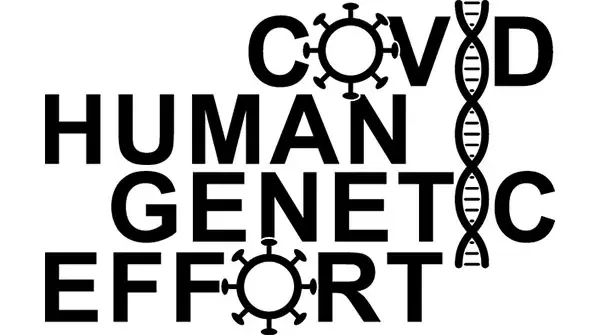Published on 12.08.2021
This consortium aims to coordinate forces on an international scale. The website describes the objectives and stages of the project and the characteristics of the patients recruited in this framework.
This consortium complements the GENCOVID project submitted by the Human Genetics of Infectious Diseases: Monogenic Predisposition laboratory of Jean-Laurent Casanova and the Human Genetics of Infectious Diseases: Complex Predisposition laboratory of Laurent Abel, which obtained a Flash COVID-19 funding from the French National Research Agency (ANR) This project focuses on the identification of single gene defects in immunity responsible for severe forms of COVID-19 in previously healthy patients.
The mission of the Consortium is to discover :
- Rare or common inborn errors of immunity (IEI) that cause severe forms of COVID-19 in previously healthy individuals
- Rare or common monogenic variations that make some individuals resistant to infection with CoV2-SARS itself, despite repeated exposure.
These two projects aim to discover the truly causative rare or common monogenic variations and to decipher the molecular, cellular and immunological mechanisms by which they actually cause resistance to viral infection or predisposition to severe disease.
Objectives
The first project aims to:
- Recruit young, otherwise healthy patients with severe COVID-19 (and their family members, as well as HIV-positive individuals who remained asymptomatic, when available).
- Search for candidate disease-causing variants by whole exome sequencing/whole genome sequencing of patients and controls (including asymptomatic infected individuals)
- Conduct functional studies to characterize the products of candidate variants biochemically and analyze corresponding patient cells immunologically.
This project should reveal the mechanisms involved in the pathogenesis of severe COVID-19, which may also be disrupted by other factors in elderly and/or co-morbid patients, paving the way for the development of new preventive and therapeutic strategies.
The second project aims to identify and identify individuals who have not been infected with SARS-CoV-2 despite repeated exposure (e.g. in the household of a patient with severe pneumonia), as evidenced by the absence of both disease and specific antibodies to the virus, and to understand why.
If such individuals are found, the hypothesis that some of them carry single-gene variations that make them naturally resistant to virus entry will be tested.

